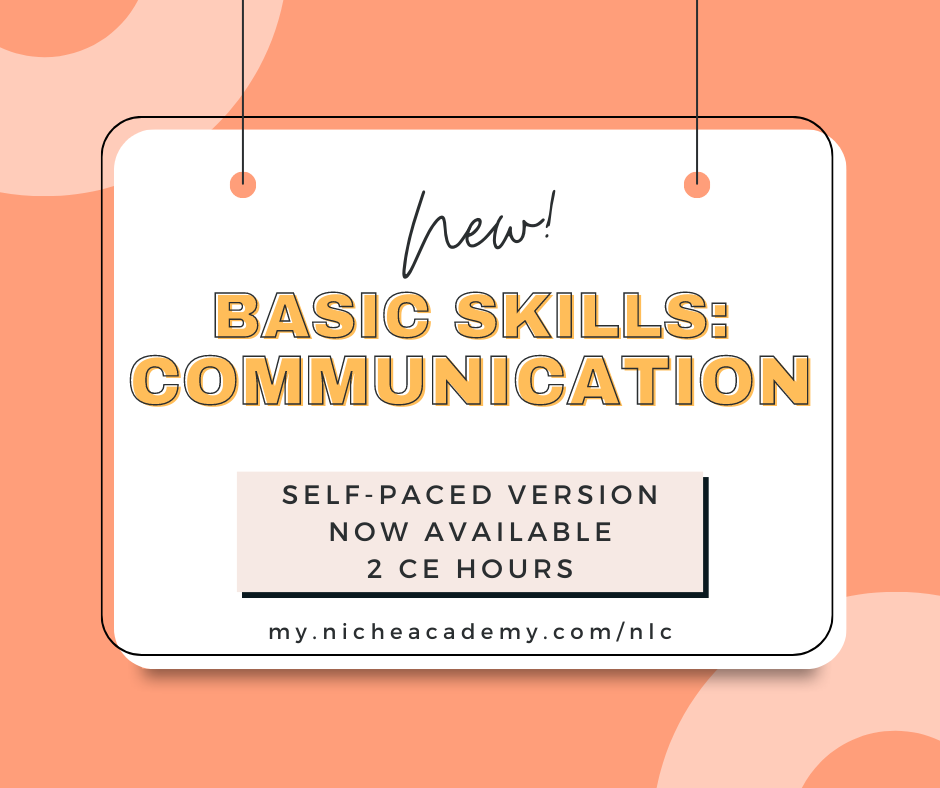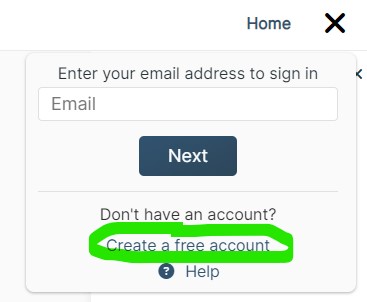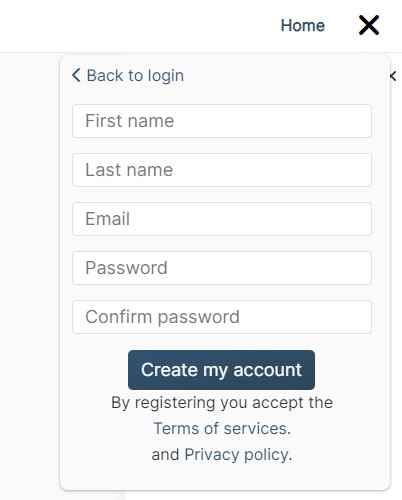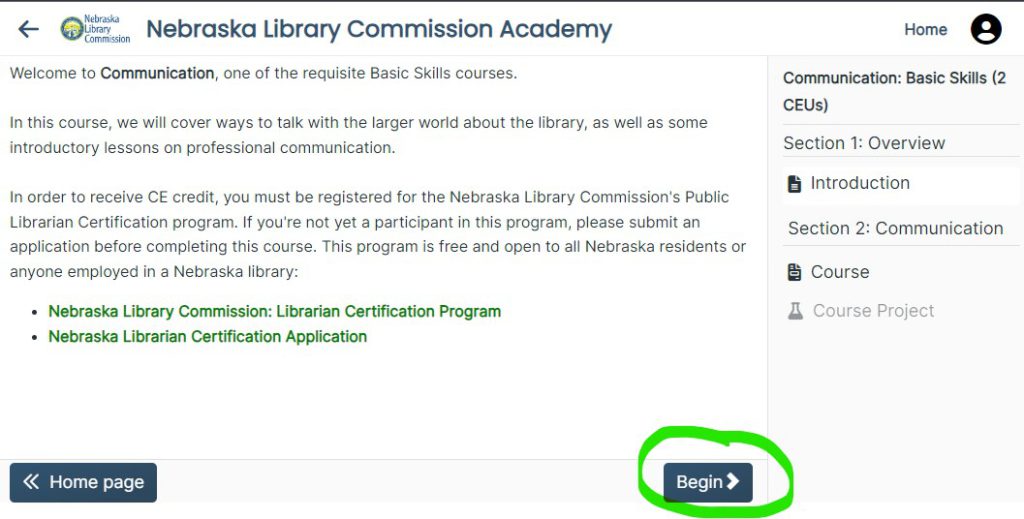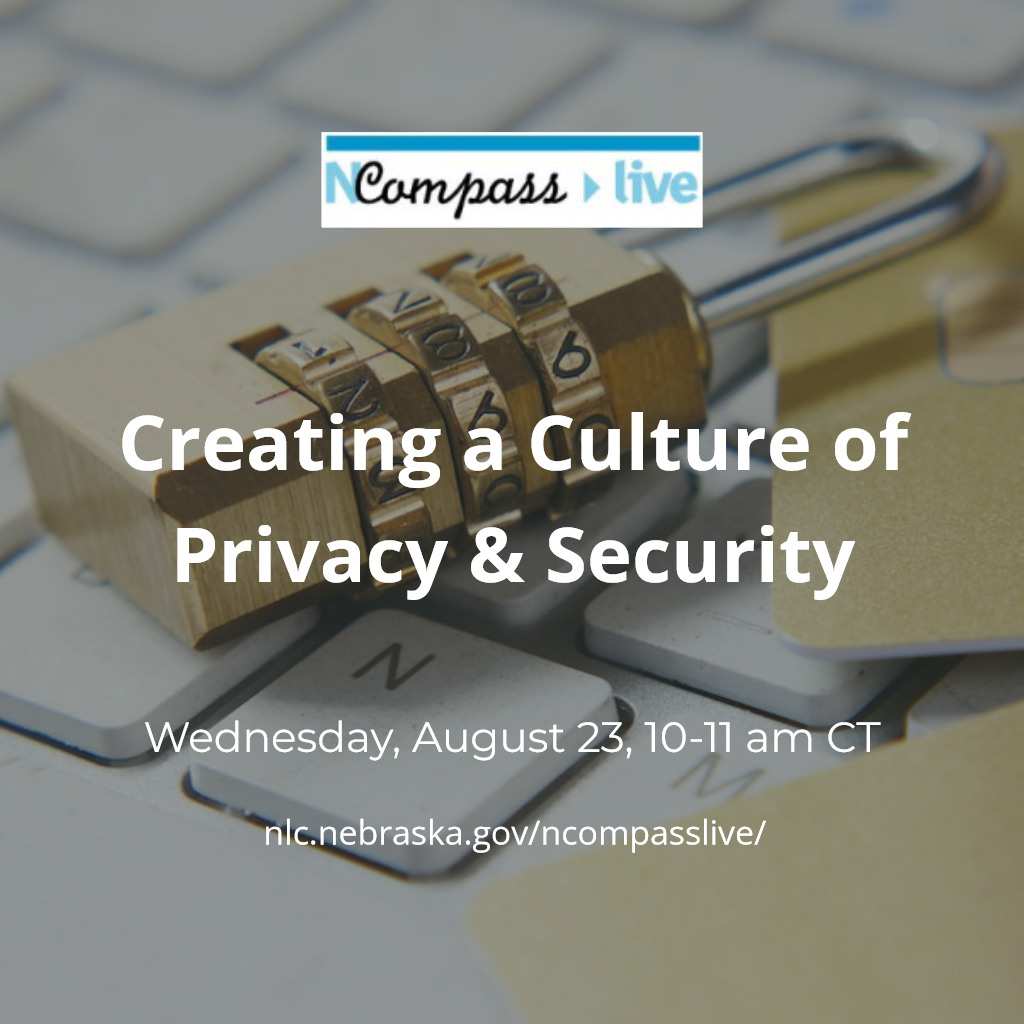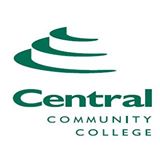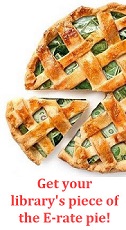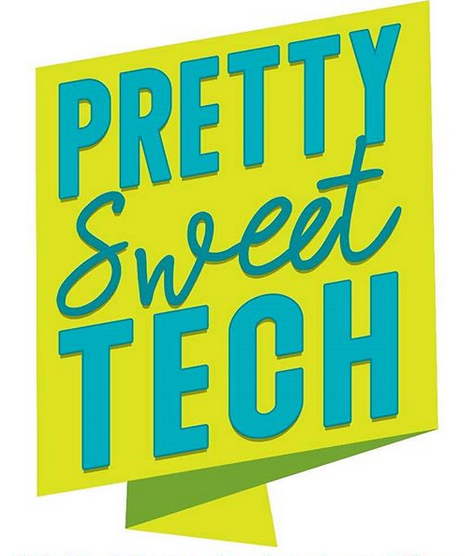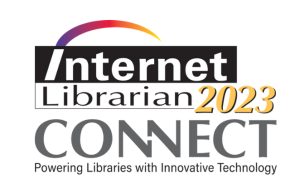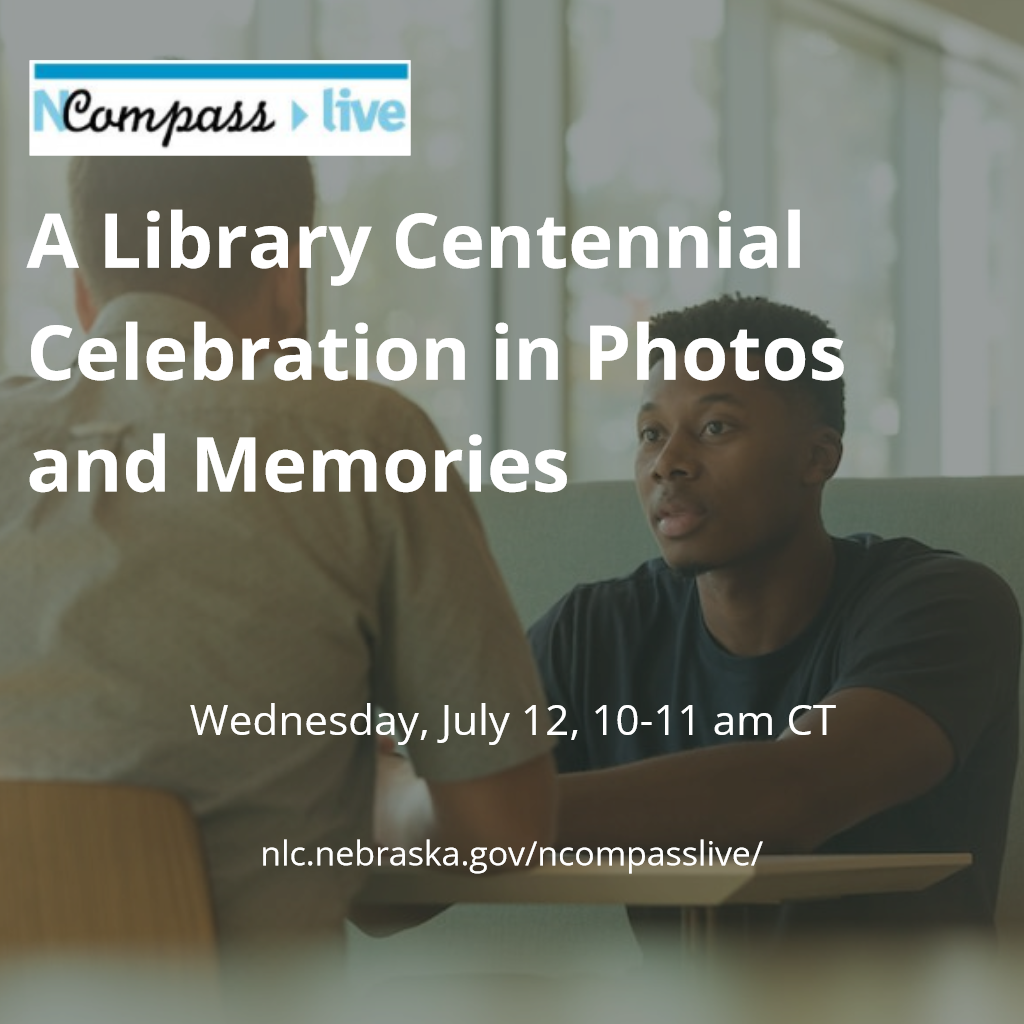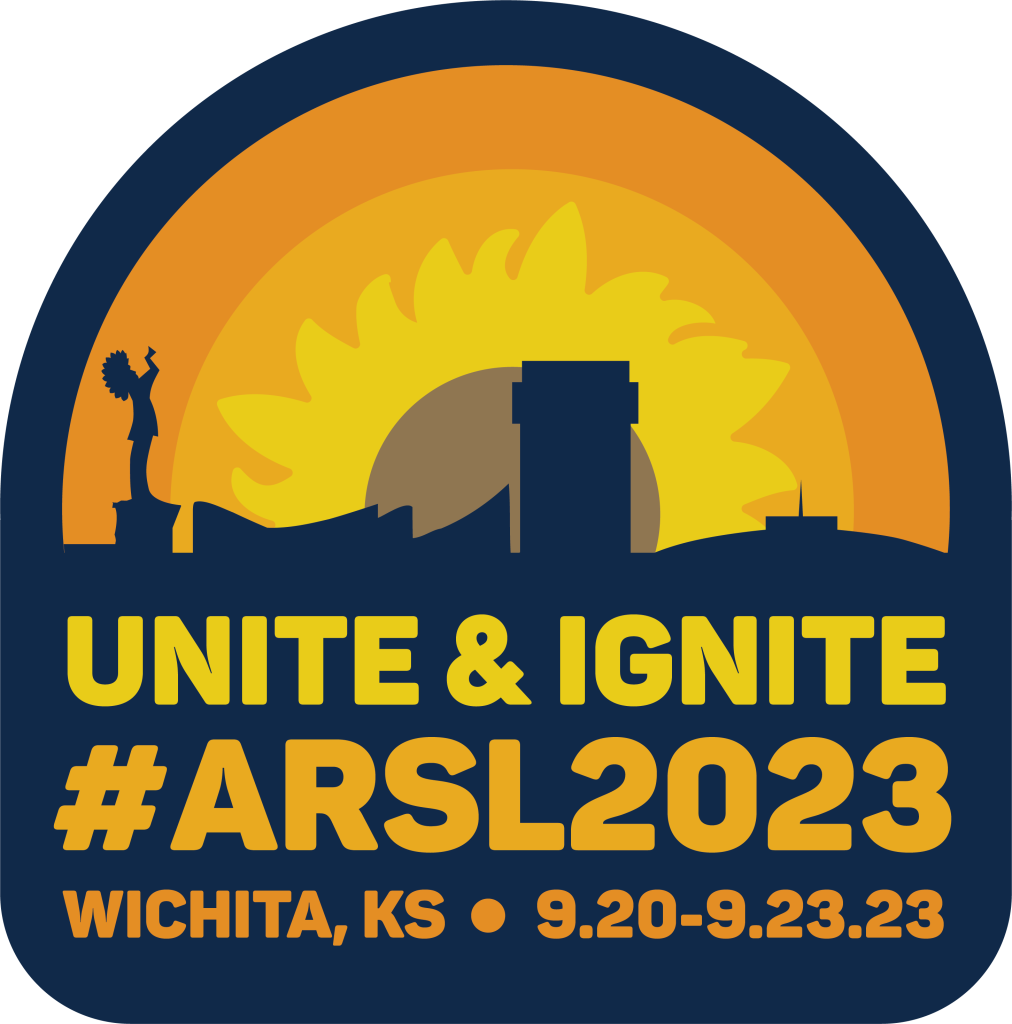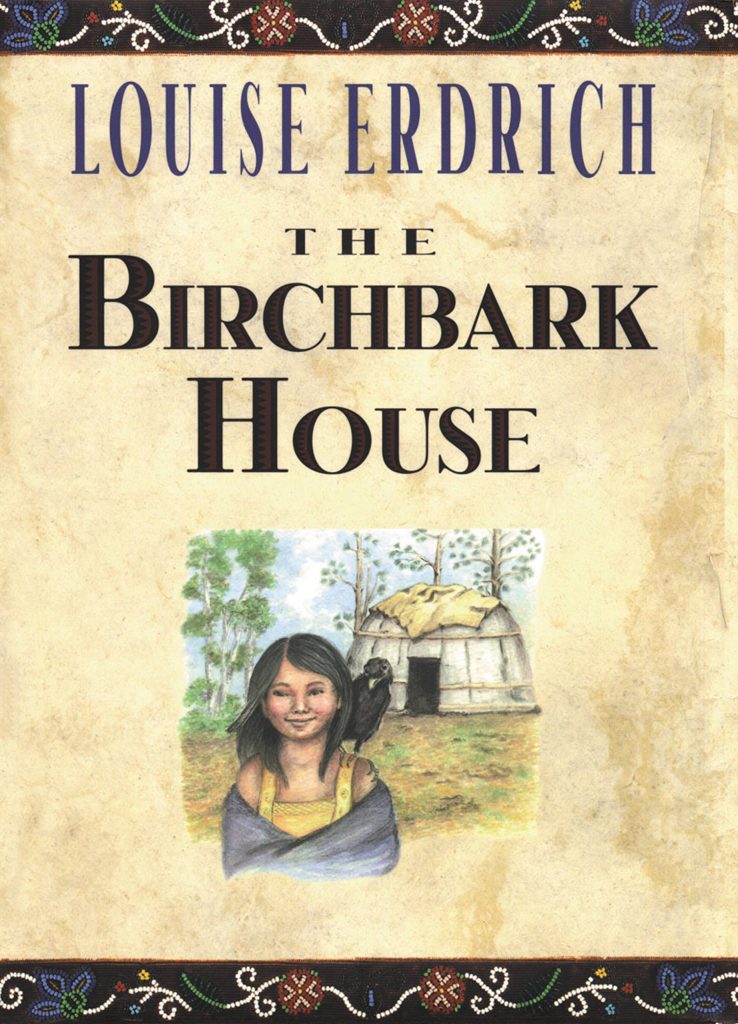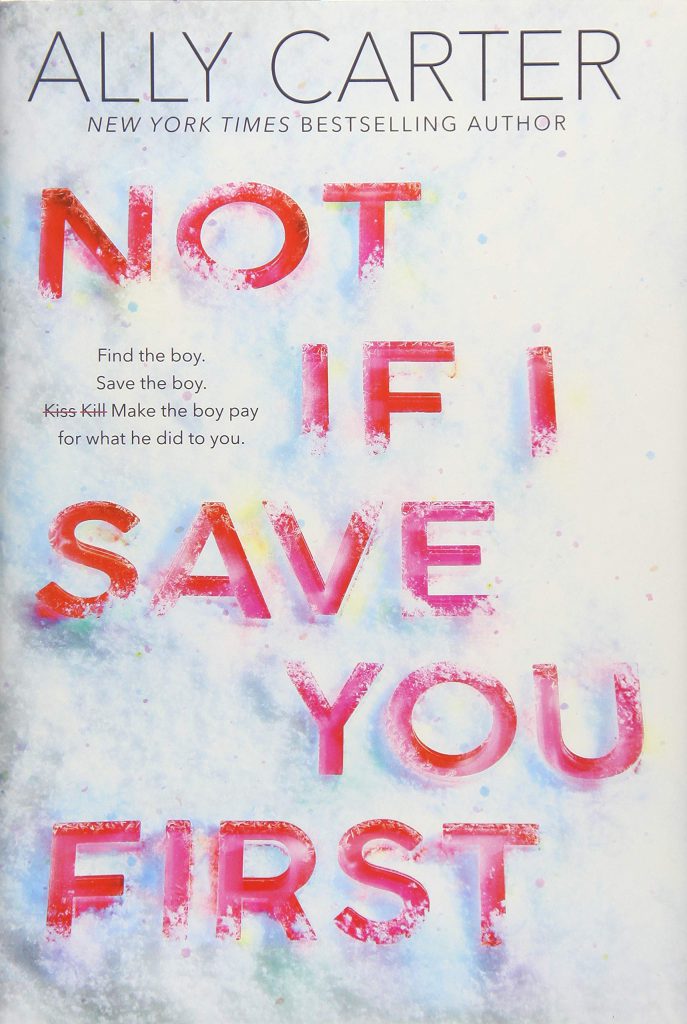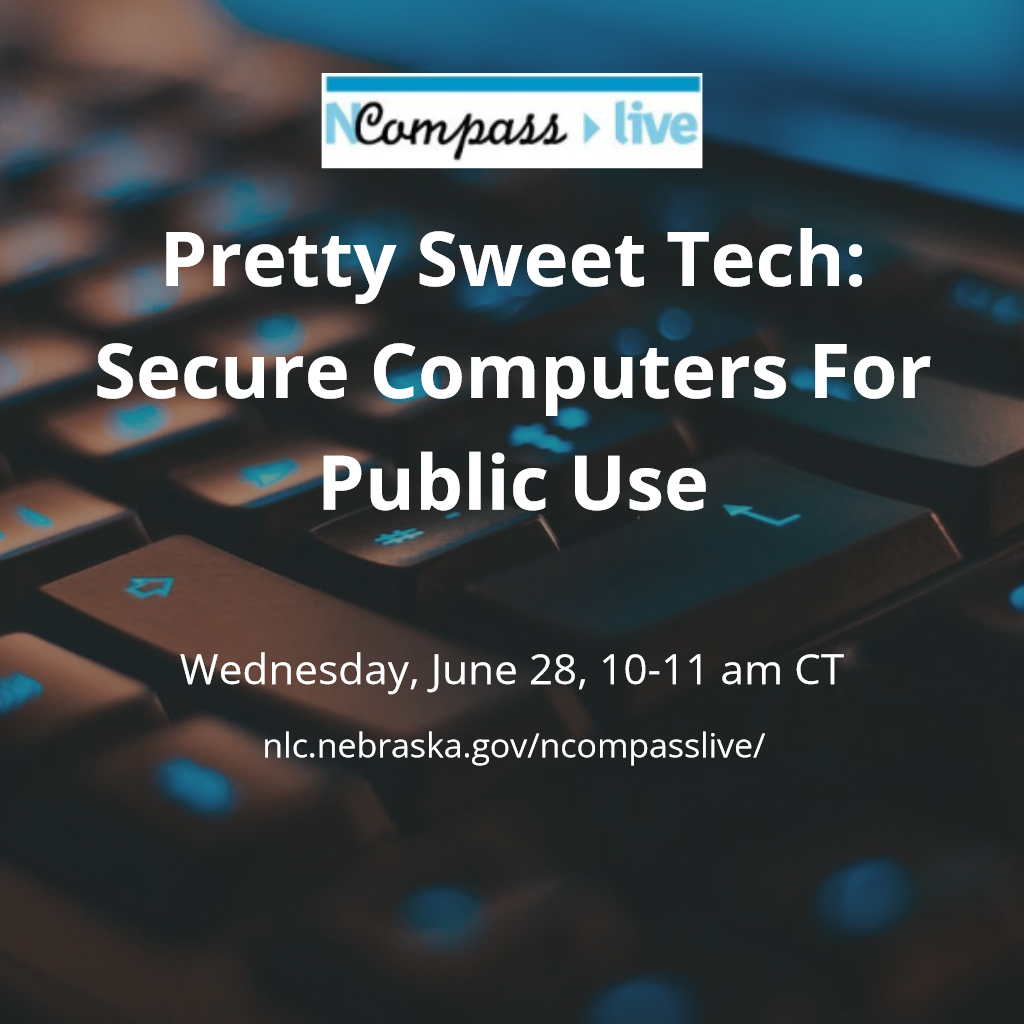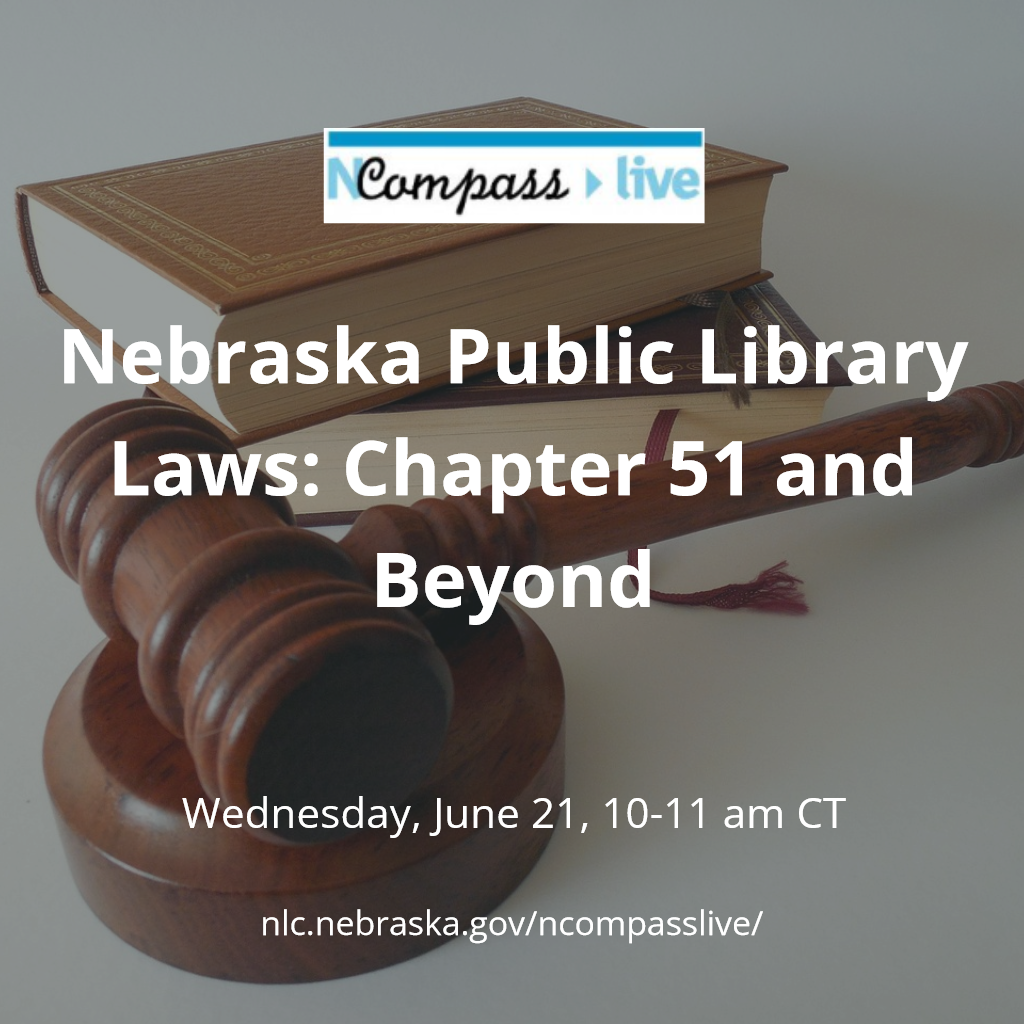Search the Blog
Categories
- Books & Reading
- Broadband Buzz
- Census
- Education & Training
- General
- Grants
- Information Resources
- Library Management
- Nebraska Center for the Book
- Nebraska Libraries on the Web
- Nebraska Memories
- Now hiring @ your library
- Preservation
- Pretty Sweet Tech
- Programming
- Public Library Boards of Trustees
- Public Relations
- Talking Book & Braille Service (TBBS)
- Technology
- Uncategorized
- What's Up Doc / Govdocs
- Youth Services
Archives
Subscribe
Category Archives: Education & Training
The Veterans Health Library: Helping Veterans Stay Well and Well-Informed
What is the Veterans Health Library?
The Veterans Health Library (VHL) is coordinated by the Department of Veterans Affairs’ National Center for Health Promotion and Disease Prevention. The VHL is a comprehensive online health resource provided to assist Veterans, their families, and caregivers understand and maintain their best health no matter where they receive care. It features timely health topics and provides a list of Veteran Resources based on the most-frequently searched topics. Health information on the website is regularly reviewed to ensure it remains evidence-based, up-to-date, and relevant to the needs of Veterans. With more than 1.6 million page views per year, the VHL is a popular resource for health information that empowers Veterans to better understand their health, their healthcare, and their options.
How does one access the Veterans Health Library? Who can use it?
The Veterans Health Library is a free-of charge platform available to anyone with an internet connection and its contents can be used by anyone regardless of where they receive their care. There is no required sign-up or login for the Veterans Health Library and users can access health information from the site at any time. Users may simply go to https://www.veteranshealthlibrary.va.gov.
VHL content is crafted to aid its users to better understand and manage their own healthcare. Many VHL resources link to uniquely Veteran-focused information, benefits, and programs that help inform Veterans, their families, and caregivers. The VHL can also be accessed by Veterans through MyHealtheVet, an online portal for Veterans receiving healthcare through VA. MyHealtheVet serves to help Veterans manage their prescriptions, appointments, secure messages with medical staff, and their health records.
What health content is available?
The Veterans Health Library hosts health information and resources, written using plain language, health literacy, and accessibility principles, with many materials in both English and Spanish. This includes over 1,600 health information sheets and 6,000 medication information sheets, all in an easy to print format. The VHL offers a catalogue of over 250 health videos across 15 categories such as Cancer (18 videos), Diabetes (15), Medications (19), Pregnancy and Women’s Health (18), and others. It contains in-depth Online Guides on topics such as cardiology, dental, eye and vision care, general health, and orthopedics. Interactive Go-to Guides include text, videos, printable action plans, quizzes and more to help Veterans better manage their chronic conditions such as asthma, chronic heart disease, diabetes, heart failure, lung disease, and stroke recovery and prevention. Additional Decision Aid Tools help Veterans to better understand treatment options, share results with their healthcare team, and work with them in developing a personalized treatment plan. The Decision Aid Tools assist Veterans in talking with their providers about their own personal health decisions around colorectal cancer screenings, diabetes care, and both flu and COVID-19 vaccinations.
How do users navigate the Veterans Health Library?
The VHL provides a four-minute video tour to help users understand how to get the most out of the VHL and find what they need. The web tour is fully transcribed and designed to help users learn the website and how to share it with Veterans and others.
There are several ways for Veterans, their families, and caregivers to quickly and easily find the health information they need on the website. There is a main search box that provides a keyword search across all content categories and formats. Below the search box there is an alphabetical browse of the Health Encyclopedia articles. Each article includes a side-bar full of links to related content and VA resources relevant to the health topic within the article.
The Veterans Health Library provides browsable clusters of curated content that serve users who wish to explore additional health information through the tabs on Living Well, Diseases & Conditions, Tests & Treatments, Medications, Rehabilitation, Mental Health, Living With… [chronic conditions], and Additional Resources. Each of those categories are broken down into sub-categories that range from a few to a few dozen related resources. This curated approach leads users to dozens of related resources within the VHL as well as resources and benefits available through other VA programs, so Veterans and users can find the information they need.
When should I suggest the Veterans Health Library to a Veteran or other user?
The VHL offers resources to help Veterans better understand and take an active role in their health care. Share the VHL with Veterans, their family members, and caregivers as a tool they can use to better understand and manage their own health. Specific resources may be beneficial with certain health situations such as:
- Instructional graphics to help Veterans understand how to take their medicines.
- Tracking diaries to support self-care and self-management of health conditions.
- Online guides to help prepare for surgical procedures.
- Preventive screening information to stay up to date with recommended tests.
- Health sheets to educate family members and caregivers on Veteran health issues.
By recommending the VHL to Veterans and those close to them, you can help empower them to take charge in pursuit of their best health.
How can I learn more?
The Veterans Health Library provides an overview of its contents and functions and has a list of frequently asked questions. You can also contact the My HealtheVet Help Desk via the online form or by calling 1-877-327-0022. The Help Desk is available Monday through Friday between the hours of 8 am – 8 pm EST. You can provide feedback through the user survey linked on every page. Together, librarians can help ensure that Veterans are well and well-informed.
Basic Skills: Communication – New Course Available!
A new version of the Basic Skills: Communication course is now available!
This course is available as a self-paced online course. You may register and take the course at any time. In this class, we will cover general communication skills, as well as some specialized forms of communications such as advocacy and marketing.
This new Communication course is located in the NLC Niche Academy. In order to register and access the course:
- NLC Niche Academy: my.nicheacademy.com/nlc
- In the upper-right corner, click the “account” icon (next to where it says “Home”)
- Enter your email and password to sign in or to create a new account
- Click “Create a free account” and fill out the short form
- Click “Create my account”
- Screenshots:
- Once you’ve created your account and are logged in, click the “Basic Skills: Communication” course.
- Read through the introduction, then click the blue “Begin” button to start the course.
Basic Skills courses are open only to Nebraska residents or those who are employed by a Nebraska library. The Basic Skills courses are sponsored by the Nebraska Library Commission and Nebraska’s Regional Library Systems.
Class participants who are enrolled in the Nebraska Public Librarian Certification program, and who successfully complete the course will earn 2 CE credit hours.
More tutorials and courses will be added to the NLC Niche Academy, so keep checking back!
If you have any questions, please contact Holli Duggan.
Posted in Education & Training
Tagged basic skills, certification, Continuing Education
Leave a comment
NCompass Live: Creating a Culture of Privacy & Security
Learn about ‘Creating a Culture of Privacy & Security’ in your library every day on next week’s NCompass Live webinar on Wednesday, August 23, at 10am CT.
This session discusses how to encourage library staff to really embody the policies of security and privacy in their library (and how to get those in place if your library doesn’t have them). Get lots of tips and insights from our experienced speaker.
Presenter: Robin Hastings, Library Services Consultant, Northeast Kansas Library System (NEKLS).
Upcoming NCompass Live shows:
- August 30 – SPECIAL TIME – 3-4pm CT – Pretty Sweet Tech: Kai’s Education: Adventures in Collaborative Coding
- Sept. 20 – NLC Grants for 2024

To register for an NCompass Live show, or to listen to recordings of past shows, go to the NCompass Live webpage.
NCompass Live is broadcast live every Wednesday from 10am – 11am Central Time. Convert to your time zone on the Official U.S. Time website.
The show is presented online using the GoTo Webinar online meeting service. Before you attend a session, please see the NLC Online Sessions webpage for detailed information about GoTo Webinar, including system requirements, firewall permissions, and equipment requirements for computer speakers and microphones.
Central Community College Announces LIS Classes for Fall 2023
Library and Information Services (LIS) class registration at Central Community College for Fall 2023: August 21, 2023 – December 15, 2023. Enrollment for the fall semester opens on Monday, April 10, 2023.
Classes include:
LIBR 1010 Foundations of Library and Information ServicesMarty Magee, Instructor
This course, the recommended first in the Library and Information Services curriculum, provides introductory information in multiple areas.
- Library history and organizations<
- Foundation Principles/Code of Ethics<
- Information databases and Internet usage<
Michael Straatmann, Instructor
This course includes the theories, concepts and activities integral to leading and managing 21st Century libraries and information agencies.
- Leadership principles
- Management strategies
- Policies and procedures
Patty Birch, Instructor
This capstone course is the last course in the Library and Information Services program. Students will complete 40 hours of service learning in a host library. The course also includes a review of the principal pieces of learning from the LIS program.
- Prerequisites: LIBR 1010, 2100, 2150, 2210, & 2250
New changes…Beginning Fall 2023, the LIBR 2210 Cataloging & Classification course has been
merged with the LIBR 2150 Managing Collections in Libraries & Information Agencies class. The new combined class is LIBR 2210 Develop and Organize Collections to be offered in Spring 2024. And the Library & Information Services Certificate has been reduced from 18 credit hours to a 15-credit hour program.
For more information on the Library and Information Services program, see: www.cccneb.edu/lis/
For information concerning Admissions or Registration, contact: Dee Johnson, djohnson@cccneb.edu, 402-562-1418 or Toll Free at 877-222-0780.
Grant Opportunity: High School Drone Program
If you work with high school students in your library, or know a high school in need of a drone program, check out this FAA Aircraft Pilots Workforce Development Grant Program.
The FAA is awarding up to $500,000 to multiple applicants for a total of $4,500,000 in an effort to attract future aircraft pilots, aerospace engineers, or unmanned aircraft systems operators (drone operators) in the U.S. Starting a drone pilot training program in your school or library is a great way to attract future aviation professionals!The grant application is due August 16, 2023, so think fast! Feel free to check out these drone training resources for high school age students as inspiration for your grant writing:
- Skyop: Drone Training Programs for High Schools. Reach out to them for a consultation and customized program. This program can actually result in pilot certification.
- Droneblocks Curriculum for DJI Tello Drones
- CoDroneEDU Classroom Packs from Robolink
You can also reach out to local community colleges and universities to get the most up to date drone-related curriculum, or more local resource and program referrals. I’ll stop droning on now. Happy applying!
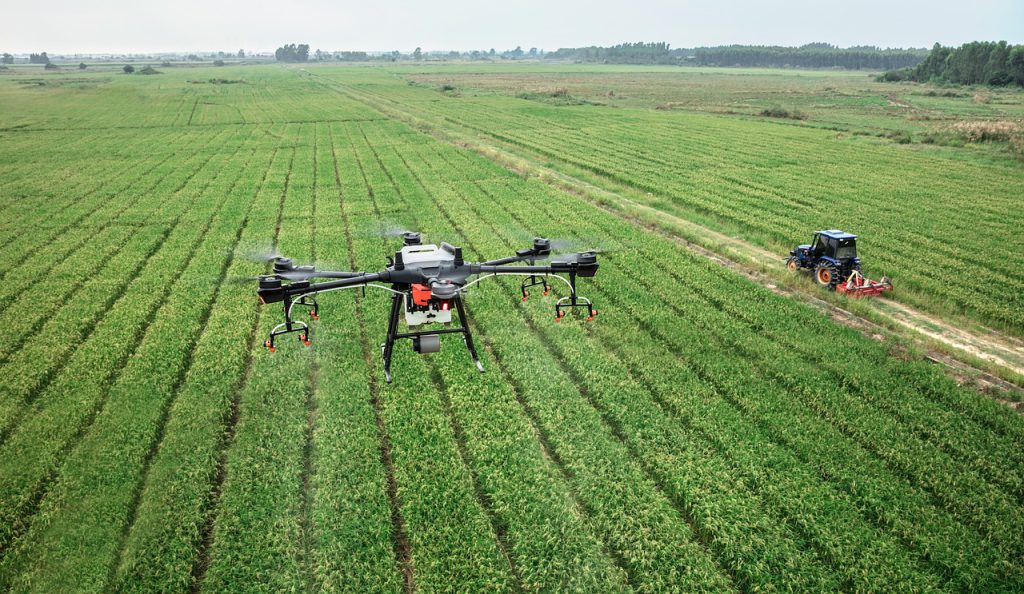
Posted in Education & Training, General, Grants, Pretty Sweet Tech
Leave a comment
NCompass Live: E-rate 101: Just the Basics for 2024
What is E-rate? How can my library benefit from E-rate? How do I apply for E-rate? Bring all of your E-rate questions to ‘E-rate 101: Just the Basics for 2024’, next week’s NCompass Live webinar, on Wednesday, August 2 at 10am CT.
E-rate is a federal program that provides discounts to schools and public libraries on the cost of their Internet Access and Connections to make these services more affordable. This includes Broadband, Fiber, and Wi-Fi Internet access as well as Internal Connections, such as wiring, routers, switches, and other network equipment.
This session will be a general overview of the E-rate program. Full in-depth E-rate workshops will be held later in the year. It will be useful to libraries who have never applied for E-rate, libraries who are new to E-rate, and current E-rate libraries who just want a short refresher on what E-rate is all about.
IMPORTANT NOTE: The dates and rules in this session will be specific to E-rate Funding Year 2024.
Presenter: Christa Porter, Nebraska’s State E-rate Coordinator for Public Libraries, Nebraska Library Commission.
Upcoming NCompass Live shows:
- August 9 – Deploying Soft Skills in the Library Setting
- August 30 – Pretty Sweet Tech

To register for an NCompass Live show, or to listen to recordings of past shows, go to the NCompass Live webpage.
NCompass Live is broadcast live every Wednesday from 10am – 11am Central Time. Convert to your time zone on the Official U.S. Time website.
The show is presented online using the GoTo Webinar online meeting service. Before you attend a session, please see the NLC Online Sessions webpage for detailed information about GoTo Webinar, including system requirements, firewall permissions, and equipment requirements for computer speakers and microphones.
United for Libraries Virtual 2023 Conference: Free Registration!

2023 United for Libraries Virtual: Trustees, Friends, Foundations
August 1-3, 2023
The Nebraska Library Commission has purchased statewide registration! All library directors/staff, Trustees/board members, and Friends of the Library and Foundation representatives receive FREE live registration and/or on-demand viewing – a value of $139 per person.
This interactive three-day virtual event will feature expert speakers on current topics facing library Trustees, Friends, Foundations, and staff who work with them.
- Participate in live Q&A sessions with presenters.
- Network with colleagues across the country.
- Enjoy exclusive access to keynote speakers and authors.
- View on-demand sessions for one year after the live event.
- Receive a certificate of attendance (for live participation or on-demand viewing).
Attending the Virtual Conference
- See list of sessions here.
- All sessions will be presented live *and* recorded in full.
- Attend any/all sessions live and/or watch on-demand.
- Participate from your laptop, phone, or tablet via Zoom.
- And/or coordinate a viewing event at your library!
- Zoom room opens at 9:30 am CST daily with programming from 10:00 am-3:00 pm CST daily (includes scheduled breaks).
Registering to Attend the Virtual Conference
- Choose one of the following options:
- Click here to register for statewide access. We’ll also register you for the virtual conference.
- Click here to register for the virtual conference. We’ll also register you for statewide access.
- Email united@ala.org with your full name, library, and primary role on behalf of your library. We’ll register you for both the virtual conference and statewide access.
- For library directors, board chairs, Friends presidents, Foundation board presidents – you may send a list of your board members, including their names, email addresses, library, and primary role, to united@ala.org. Staff will create logins for each person, enroll them in the statewide course and 2023 United for Libraries Virtual, and send each person their login credentials.
Invite Your Library Patrons to United’s 2023 Virtual Gala Author Tea
The Gala Author Tea, presented at 3:00 pm CST on Thursday, August 3, will be livestreamed via Facebook. More information coming soon, including a list of participating authors.
- Invite your patrons to the watch the livestream via Facebook at https://fb.me/e/1cD58JyXD.
- Host a viewing party at your library and livestream the event. Consider providing tea and light refreshments.
If you have any questions, please contact Holli Duggan.
Posted in Education & Training
Tagged conference, Library Boards, Library Friends, Trustees, United for Libraries
Leave a comment
NCompass Live: Pretty Sweet Tech: Internet Filtering For E-Rate CIPA Compliance And Cybersecurity
Learn about ‘Internet Filtering For E-Rate CIPA Compliance And Cybersecurity’ on next week’s Pretty Sweet Tech NCompass Live webinar on Wednesday, July 26, at 10am CT.
Special monthly episodes of NCompass Live! Join the NLC’s Technology Innovation Librarian, Amanda Sweet, as she guides us through the world of library-related Pretty Sweet Tech.
To take advantage of the E-rate funding to pay for your library’s Internet service, you are required to have CIPA (Children’s Internet Protection Act) compliant filtering in place. Filtering can also provide strong cybersecurity protection for library staff and customers. Guest Presenter Andrew “Sherm” Sherman, with the Nebraska Library Commission Computer Services team, will discuss how this filtering can be implemented, the cyber security benefits, and the various solutions that meet CIPA guidelines.
Upcoming NCompass Live shows:
- August 9 – Deploying Soft Skills in the Library Setting
- August 30 – Pretty Sweet Tech

To register for an NCompass Live show, or to listen to recordings of past shows, go to the NCompass Live webpage.
NCompass Live is broadcast live every Wednesday from 10am – 11am Central Time. Convert to your time zone on the Official U.S. Time website.
The show is presented online using the GoTo Webinar online meeting service. Before you attend a session, please see the NLC Online Sessions webpage for detailed information about GoTo Webinar, including system requirements, firewall permissions, and equipment requirements for computer speakers and microphones.
Internet Librarian Connect 2023 Conference (Oct. 16-19)
The Nebraska Library Commission is pleased to offer a discount to all librarians in Nebraska who sign up for a Virtual Pass to attend the Internet Librarian Connect 2023 Conference. The conference is going virtual this year, so join your peers online to learn, share, and celebrate the future of libraries!
The Virtual Pass discounted rate is $199 (regularly $299). The Virtual Pass includes access to all keynotes and main conference sessions, networking, and the virtual exhibit hall. It also includes access to archived session recordings for viewing through December 31, 2023. (Does not include access to workshops unless purchased separately.)
This year the conference is being held virtually, from October 16-19, 2023. Detailed information about the conference can be found on the virtual event website now!
View the Event Agenda for session dates, times, and descriptions.
To receive the discount:
- Go to the Internet Librarian Connect 2023 registration link: https://site.pheedloop.com/event/ILC23/register#category
- If you are registering a single person, click on the Single Registration option.
- If you are registering more than one person, click on the Team Registration option.
- Complete the registration form, entering and applying the appropriate discount code (see below) when prompted at checkout. Your discounted pricing should appear at this point.
- The Single Registration discount code is: NLC23-SINGLE
- The Team Registration discount code is: NLC23-TEAM
Please note that sharing virtual access is not allowed. Each registration allows access for one person only.
Serials cataloging class registration is now open!
Courses are open only to Nebraska residents or those who are employed by a Nebraska library.
This class provides the basic principles of serials cataloging for original and copy cataloging. Topics will include title changes and when to create a new record, what to edit when working with copy, and how to determine the preferred source for title transcription.
Classes will be held online from August 28th to September 29th. In order to receive credit for the class all assignments must be completed by October 1st AND you must receive a 75%, or above, for the course.
Class participants will access the course website in order to read materials and complete projects and assignments. The class is held asynchronously, which means that participants are not required to be online at any particular time during the five weeks; however, there is a class schedule that participants are expected to follow. The instructor will interact with the participants during the course to offer feedback and provide explanations of the material.
A few days before the class starts, class participants will be sent information about accessing the class.
This class is approved for the NLC Cataloging Certificate Program.
Prerequisite: Library staff with regular usage and knowledge of AACR2/RDA, MARC records, and cataloging. Preferred that the attendee has completed the Understanding Marc/Marc Tutorial course.
To register: Go to Introduction to Serials Cataloging in the Nebraska Library Commission Training Portal. Registration closes on August 20, 2023
Posted in Education & Training
Tagged Cataloger, cataloging, cataloging certificate, Continuing Education, MARC, serials
Leave a comment
United for Libraries Virtual 2023 Conference
2023 United for Libraries Virtual: Trustees, Friends, Foundations
August 1-3, 2023
Congratulations! The Nebraska Library Commission has purchased statewide registration! All library directors/staff, Trustees/board members, and Friends of the Library and Foundation representatives receive FREE live registration and/or on-demand viewing – a value of $139 per person.
This interactive three-day virtual event will feature expert speakers on current topics facing library Trustees, Friends, Foundations, and staff who work with them.
- Participate in live Q&A sessions with presenters.
- Network with colleagues across the country.
- Enjoy exclusive access to keynote speakers and authors.
- View on-demand sessions for one year after the live event.
- Receive a certificate of attendance (for live participation or on-demand viewing).
Attending the Virtual Conference
- See list of sessions here.
- All sessions will be presented live *and* recorded in full.
- Attend any/all sessions live and/or watch on-demand.
- Participate from your laptop, phone, or tablet via Zoom.
- And/or coordinate a viewing event at your library!
- Zoom room opens at 9:30 am CST daily with programming from 10:00 am-3:00 pm CST daily (includes scheduled breaks).
Registering to Attend the Virtual Conference
- Choose one of the following options:
- Click here to register for statewide access. We’ll also register you for the virtual conference.
- Click here to register for the virtual conference. We’ll also register you for statewide access.
- Email united@ala.org with your full name, library, and primary role on behalf of your library. We’ll register you for both the virtual conference and statewide access.
- For library directors, board chairs, Friends presidents, Foundation board presidents – you may send a list of your board members, including their names, email addresses, library, and primary role, to united@ala.org. Staff will create logins for each person, enroll them in the statewide course and 2023 United for Libraries Virtual, and send each person their login credentials.
Invite Your Library Patrons to United’s 2023 Virtual Gala Author Tea
The Gala Author Tea, presented at 3:00 pm CST on Thursday, August 3, will be livestreamed via Facebook. More information coming soon, including a list of participating authors.
- Invite your patrons to the watch the livestream via Facebook at https://fb.me/e/1cD58JyXD.
- Host a viewing party at your library and livestream the event. Consider providing tea and light refreshments.
If you have any questions, please contact Holli Duggan.
NCompass Live: A Library Centennial Celebration in Photos and Memories
Hear how Baright Public Library created ‘A Library Centennial Celebration in Photos and Memories’ on next week’s NCompass Live webinar on Wednesday, July 12 at 10am CT.
Using a qualitative research methodology termed “photovoices,” oral histories, memories, and reflections were gathered from Ralston community members for Baright Public Library’s centennial celebration. Long-time and recent residents were interviewed to gather personal stories and photographs provided by the interviewees. Participants were asked to share photographs that showed something meaningful in relation to the Ralston, Nebraska community or the library and to talk through why they chose that photo and what it means to them. This session focuses on the research process including participant recruitment and staff time, the research methodology, and the value of this type of project for a centennial celebration.
Presenter: Amy Jo Ellefson, Adult Programs Coordinator, Baright Public Library, Ralston, NE
Upcoming NCompass Live shows:
- July 19 – Nebraska Open Meetings Act: 2023 Overview and Updates
- July 26 – Pretty Sweet Tech: Internet Filtering For E-Rate CIPA Compliance And Cybersecurity

To register for an NCompass Live show, or to listen to recordings of past shows, go to the NCompass Live webpage.
NCompass Live is broadcast live every Wednesday from 10am – 11am Central Time. Convert to your time zone on the Official U.S. Time website.
The show is presented online using the GoTo Webinar online meeting service. Before you attend a session, please see the NLC Online Sessions webpage for detailed information about GoTo Webinar, including system requirements, firewall permissions, and equipment requirements for computer speakers and microphones.
What’s Up Doc? New State Agency Publications at the Nebraska Library Commission
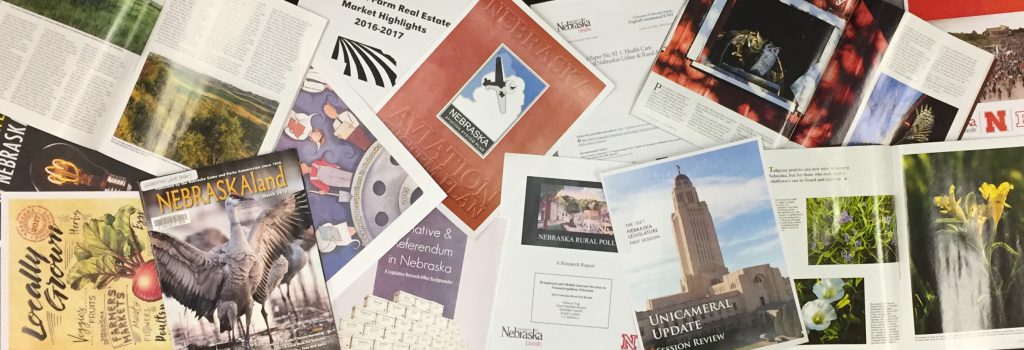
New state agency publications have been received at the Nebraska Library Commission for May and June, 2023. Included are reports from the Nebraska Auditor of Public Accounts, the Nebraska Board of Parole, the Nebraska Foster Care Review Office, the Nebraska Legislature, and new books from the University of Nebraska Press, to name a few.
Most items, except the books from the University of Nebraska Press, are available for immediate viewing and printing by clicking on the highlighted link above, or directly in the .pdf below. You can read synopses of the books received from the University of Nebraska Press in the Book Briefs blogposts.
The Nebraska Legislature created the Nebraska Publications Clearinghouse in 1972 as a service of the Nebraska Library Commission. Its purpose is to collect, preserve, and provide access to all public information published by Nebraska state agencies. By law (State Statutes 51-411 to 51-413) all Nebraska state agencies are required to submit their published documents to the Clearinghouse. For more information, visit the Nebraska Publications Clearinghouse page, contact Mary Sauers, Government Information Services Librarian; or contact Bonnie Henzel, State Documents Staff Assistant.
Posted in Books & Reading, Education & Training, General, Information Resources, What's Up Doc / Govdocs
Tagged books, GovDocs, Reading
Leave a comment
Book Briefs: New University of Nebraska Press Books at the Nebraska Publications Clearinghouse
The Nebraska Publications Clearinghouse receives documents every month from all Nebraska state agencies, including the University of Nebraska Press (UNP). Each month we will be showcasing the UNP books that the Clearinghouse has received.
UNP books, as well as all Nebraska state documents, are available for checkout by libraries and librarians for their patrons.
Here are the UNP books the Clearinghouse received in May and June, 2023:
Agriculture in the Midwest, 1815-1900, by R. Douglas Hurt.
After the War of 1812 and the removal of the region’s Indigenous peoples, the American Midwest became a paradoxical land for settlers. Even as many settlers found that the region provided the bountiful life of their dreams, others found disappointment, even failure—and still others suffered social and racial prejudice.
In this broad and authoritative survey of midwestern agriculture from the War of 1812 to the turn of the twentieth century, R. Douglas Hurt contends that this region proved to be the country’s garden spot and the nation’s heart of agricultural production. During these eighty-five years the region transformed from a sparsely settled area to the home of large industrial and commercial cities, including Chicago, Milwaukee, Cleveland, and Detroit. Still, it remained primarily an agricultural region that promised a better life for many of the people who acquired land, raised crops and livestock, provided for their families, adopted new technologies, and sought political reform to benefit their economic interests. Focusing on the history of midwestern agriculture during wartime, utopian isolation, and colonization as well as political unrest, Hurt contextualizes myriad facets of the region’s past to show how agricultural life developed for midwestern farmers—and to reflect on what that meant for the region and nation.
The First Migrants : How Black Homesteaders’ Quest for Land and Freedom Heralded America’s Great Migration, by Richard Edwards and Jacob K. Friefeld.
The First Migrants recounts the largely unknown story of Black people who migrated from the South to the Great Plains between 1877 and 1920 in search of land and freedom. They exercised their rights under the Homestead Act to gain title to 650,000 acres, settling in all of the Great Plains states. Some created Black homesteader communities such as Nicodemus, Kansas, and DeWitty, Nebraska, while others, including George Washington Carver and Oscar Micheaux, homesteaded alone. All sought a place where they could rise by their own talents and toil, unencumbered by Black codes, repression, and violence. In the words of one Nicodemus descendant, they found “a place they could experience real freedom,” though in a racist society that freedom could never be complete. Their quest foreshadowed the epic movement of Black people out of the South known as the Great Migration.
In this first account of the full scope of Black homesteading in the Great Plains, Richard Edwards and Jacob K. Friefeld weave together two distinct strands: the narrative histories of the six most important Black homesteader communities and the several themes that characterize homesteaders’ shared experiences. Using homestead records, diaries and letters, interviews with homesteaders’ descendants, and other sources, Edwards and Friefeld illuminate the homesteaders’ fierce determination to find freedom—and their greatest achievements and struggles for full equality.
French St. Louis : Landscapes, Contexts, and Legacy, Edited by Jay Gitlin, Robert Michael Morrissey, and Peter J. Kastor. Series: France Overseas: Studies in Empire and Decolonization
A gateway to the West and an outpost for eastern capital and culture, St. Louis straddled not only geographical and political divides but also cultural, racial, and sectional ones. At the same time, it connected a vast region as a gathering place of peoples, cultures, and goods. The essays in this collection contextualize St. Louis, exploring French-Native relations, the agency of empire in the Illinois Country, the role of women in “mapping” the French colonial world, fashion and identity, and commodities and exchange in St. Louis as part of a broader politics of consumption in colonial America. The collection also provides a comparative perspective on America’s two great Creole cities, St. Louis and New Orleans. Lastly, it looks at the Frenchness of St. Louis in the nineteenth century and the present.
French St. Louis recasts the history of St. Louis and reimagines regional development in the early American republic, shedding light on its francophone history.
Hoarding New Guinea : Writing Colonial Ethnographic Collection Histories for Postcolonial Futures, by Rainer F. Buschmann. Series: Critical Studies in the History of Anthropology
Hoarding New Guinea provides a new cultural history of colonialism that pays close attention to the millions of Indigenous artifacts that serve as witnesses to Europe’s colonial past in ethnographic museums. Rainer F. Buschmann investigates the roughly two hundred thousand artifacts extracted from the colony of German New Guinea from 1870 to 1920. Reversing the typical trajectories that place ethnographic museums at the center of the analysis, he concludes that museum interests in material culture alone cannot account for the large quantities of extracted artifacts.
Buschmann moves beyond the easy definition of artifacts as trophies of colonial defeat or religious conversion, instead employing the term hoarding to describe the irrational amassing of Indigenous artifacts by European colonial residents. Buschmann also highlights Indigenous material culture as a bargaining chip for its producers to engage with the imposed colonial regime. In addition, by centering an area of collection rather than an institution, he opens new areas of investigation that include non-professional ethnographic collectors and a sustained rather than superficial consideration of Indigenous peoples as producers behind the material culture. Hoarding New Guinea answers the call for a more significant historical focus on colonial ethnographic collections in European museums.
The Korean War Remembered : Contested Memories of an Unended Conflict, by Michael J. Devine. Series: Studies in War, Society, and the Military
Michael J. Devine provides a fresh, wide-ranging, and international perspective on the contested memory of the 1950–1953 conflict that left the Korean Peninsula divided along a heavily fortified demilitarized zone. His work examines “theaters of memory,” including literature, popular culture, public education efforts, monuments, and museums in the United States, China, and the two Koreas, to explain how contested memories have evolved over decades and how they continue to shape the domestic and foreign policies of the countries still involved in this unresolved struggle for dominance and legitimacy. The Korean War Remembered also engages with the revisionist school of historians who, influenced by America’s long nightmare in Vietnam, consider the Korean War an unwise U.S. interference in a civil war that should have been left to the Koreans to decide for themselves.
As a former Peace Corps volunteer to Korea, a two-time senior Fulbright lecturer at Korean universities, and former director of the Harry S. Truman Presidential Library, Devine offers the unique perspective of a scholar with half a century of close ties to Korea and the Korean American community, as well as practical experience in the management of historical institutions.
The Mobilized American West, 1940-2000, by John M. Findlay. Series: History of the American West
In the years between 1940 and 2000, the American Far West went from being a relative backwater of the United States to a considerably more developed, modern, and prosperous region—one capable of influencing not just the nation but the world. By the dawn of the twenty-first century, the population of the West had multiplied more than four times since 1940, and western states had transitioned from rural to urban, becoming the most urbanized section of the country. Massive investment, both private and public, in the western economy had produced regional prosperity, and the tourism industry had undergone massive expansion, altering the ways Americans identified with the West.
In The Mobilized American West, 1940–2000, John M. Findlay presents a historical overview of the American West in its decades of modern development. During the years of U.S. mobilization for World War II and the Cold War, the West remained a significant, distinct region even as its development accelerated rapidly and, in many ways, it became better integrated into the rest of the country. By examining events and trends that occurred in the West, Findlay argues that a distinctive, region-wide political culture developed in the western states from a commitment to direct democracy, the role played by the federal government in owning and managing such a large amount of land, and the way different groups of westerners identified with and defined the region. While illustrating western distinctiveness, Findlay also aims to show how, in its sustaining mobilization for war, the region became tethered to the entire nation more than ever before, but on its own terms. Findlay presents an innovative approach to viewing the American West as a region distinctive of the United States, one that occasionally stood ahead of, at odds with, and even in defiance of the nation.
My Side of the River : an Alaska Native Story, by Elias Kelly. Series: American Indian Lives
In 1971 the U.S. government created the Alaska Native Claims Settlement Act and extinguished Alaska Native aboriginal rights to hunting and fishing—forever changing the way Alaska Natives could be responsible for their way of life. The Alaska Department of Fish and Game and the U.S. Fish and Wildlife Service claimed all wildlife management responsibility and have since told Natives when, where, and how to fish, hunt, and harvest according to colonial management doctrines. We need only look at our current Alaska salmon conditions to see how these management efforts have worked.
In My Side of the River, agricultural specialist Elias Kelly (Yup’ik) relates how traditional Native subsistence hunting is often unrecognized by government regulations, effectively criminalizing those who practice it. Kelly alternates between personal stories of friends, family, and community and legal attempts to assimilate Native Alaskans into white U.S. fishing and hunting culture. He also covers landownership, incorporation of Alaska residents, legal erasure of Native identity, and poverty rates among Native Alaskans. In this memoir of personal and public history, Kelly illuminates the impact of government regulations on traditional life and resource conservation.
Remembering World War I in American, by Kimberly J. Lamay Licursi. Series: Studies in War, Society, and the Military
Poised to become a significant player in the new world order, the United States truly came of age during and after World War I. Yet many Americans think of the Great War simply as a precursor to World War II. Americans, including veterans, hastened to put experiences and memories of the war years behind them, reflecting a general apathy about the war that had developed during the 1920s and 1930s and never abated.
In Remembering World War I in America Kimberly J. Lamay Licursi explores the American public’s collective memory and common perception of World War I by analyzing the extent to which it was expressed through the production of cultural artifacts related to the war. Through the analysis of four vectors of memory—war histories, memoirs, fiction, and film—Lamay Licursi shows that no consistent image or message about the war ever arose that resonated with a significant segment of the American population. Not many war histories materialized, war memoirs did not capture the public’s attention, and war novels and films presented a fictional war that either bore little resemblance to the doughboys’ experience or offered discordant views about what the war meant. In the end Americans emerged from the interwar years with limited pockets of public memory about the war that never found compromise in a dominant myth.
The Visible Hands That Feed : Responsibility and Growth in the Food Sector, by Ruzana Liburkina. Series: Our Sustainable Future
The Visible Hands That Feed provides crucial insights into the rifts and regularities that are characteristic of today’s food systems. These insights attend to the widespread disquiet about the ethics and politics of food production and trade. While challenging utopian thinking, these findings give hope by elaborating on the promising nature of what falls between political and moral agendas.
In The Visible Hands That Feed Ruzana Liburkina approaches the food sector against the backdrop of its pivotal role for social and ecological relations to trace the potentials and limitations for sustainable change from within. Drawing on the results of ethnographic fieldwork in Europe and South America, Liburkina conducts an in-depth exploration of the practices, visions, concerns, and relationships that unfold at the very locations where food is grown, processed, stored, and served. By scrutinizing two critical notions in relation to sustainability—responsibility and growth—Liburkina offers insights into how sustainable change might be understood and further supported. In this first study of food production and provisioning that is grounded in participant observation in four types of food sector enterprises—farms, food processing companies, foodservice distributors, and public caterers—Liburkina fills an important gap in the literature on sustainable futures by offering detailed and diverse empirical insights into corporate food production and provisioning.
When Women Ruled the Pacific : power and Politics in Nineteenth-Century Tahiti and Hawai’i, by Joy Schulz. Series: Studies in Pacific Worlds
Throughout the nineteenth century British and American imperialists advanced into the Pacific, with catastrophic effects for Polynesian peoples and cultures. In both Tahiti and Hawai‘i, women rulers attempted to mitigate the effects of these encounters, utilizing their power amid the destabilizing influence of the English and Americans. However, as the century progressed, foreign diseases devastated the Tahitian and Hawaiian populations, and powerful European militaries jockeyed for more formal imperial control over Polynesian waystations, causing Tahiti to cede rule to France in 1847 and Hawai‘i to relinquish power to the United States in 1893.
In When Women Ruled the Pacific Joy Schulz highlights four Polynesian women rulers who held enormous domestic and foreign power and expertly governed their people amid shifting loyalties, outright betrayals, and the ascendancy of imperial racism. Like their European counterparts, these Polynesian rulers fought arguments of lineage, as well as battles for territorial control, yet the freedom of Polynesian women in general and women rulers in particular was unlike anything Europeans and Americans had ever seen. Consequently, white chroniclers of contact had difficulty explaining their encounters, initially praising yet ultimately condemning Polynesian gender systems, resulting in the loss of women’s autonomy. The queens’ successes have been lost in the archives as imperial histories and missionary accounts chose to tell different stories. In this first book to consider queenship and women’s political sovereignty in the Pacific, Schulz recenters the lives of the women rulers in the history of nineteenth-century international relations.
**Pictures and Synopses courtesy of University of Nebraska Press.
Posted in Books & Reading, Education & Training, General, Information Resources, What's Up Doc / Govdocs
Tagged Book Covers, books, Reading
Leave a comment
ARSL 2023 Conference: Last Chance for CE Grants!
Apply now for a $500 grant to attend the ARSL 2023 Annual Conference in Wichita, Kansas on September 20-23!
Application Deadline: Friday – July 7
The purpose of these grants is to assist Nebraska libraries in improving the library services provided to their communities through continuing education and training for their library personnel and supporters. Successful applications will show how attending this conference will support the library’s mission.
Eligible costs include:
- Registration (for in-person or virtual conference)
- Travel
- Meals
- Lodging
- Preconference fees (but does not include networking or social events)
Registration costs are available on the conference website.
The applicant must be either 1) employed in an accredited Nebraska public library or a state-run institutional library at the time of application and for the duration of the course, or 2) a current board member of an accredited Nebraska public library at the time of application and for the duration of the course.
For more information on this and other CE Grants, please see:
If you have any questions or would like more information, please contact Holli Duggan.
Posted in Education & Training, Grants
Tagged #ARSL2023, CEgrants, Continuing Education, continuing education grant
Leave a comment
NCompass Live: One Book For Nebraska Kids & Teens 2023
Wouldn’t it be great if kids all over Nebraska were talking about books? Hear about the Nebraska Library Commission & the Regional Library Systems’ program where kids can all read and discuss the same book on next week’s NCompass Live webinar on Wednesday, July 5 at 10am CT.
Join Sally Snyder, the NLC’s Coordinator of Children and Young Adult Library Services, and Aimee Owen, Information Services Librarian, to learn all about the One Book for Nebraska Kids and Teens program. And be the first to hear the 2024 titles that will be announced on this show!
Our 2023 titles are:
- One Book For Nebraska Kids – The Birchbark House by Louise Erdrich
- One Book For Nebraska Teens – Not If I Save You First by Ally Carter.
Upcoming NCompass Live shows:
- July 12 – A Library Centennial Celebration in Photos and Memories
- July 19 – Nebraska Open Meetings Act: 2023 Overview and Updates
- July 26 – Pretty Sweet Tech: Internet Filtering For E-Rate CIPA Compliance And Cybersecurity

To register for an NCompass Live show, or to listen to recordings of past shows, go to the NCompass Live webpage.
NCompass Live is broadcast live every Wednesday from 10am – 11am Central Time. Convert to your time zone on the Official U.S. Time website.
The show is presented online using the GoTo Webinar online meeting service. Before you attend a session, please see the NLC Online Sessions webpage for detailed information about GoTo Webinar, including system requirements, firewall permissions, and equipment requirements for computer speakers and microphones.
NCompass Live: Pretty Sweet Tech: Secure Computers For Public Use
Learn how to keep your library computers secure for public use on next week’s NCompass Live webinar on Wednesday, June 28, at 10am CT.
Special monthly episodes of NCompass Live! Join the NLC’s Technology Innovation Librarian, Amanda Sweet, as she guides us through the world of library-related Pretty Sweet Tech.
Computers for public use are a service unique to libraries. To provide the best possible protection for the customers that use them and maximize their availability, they need to be properly secured and maintained. Guest Presenter Andrew “Sherm” Sherman, with the Nebraska Library Commission Computer Services team, will take you through the process he has used to do this for the libraries he has provided IT support for.
Upcoming NCompass Live shows:
- July 5 – One Book for Nebraska Kids & Teens 2023
- July 12 – A Library Centennial Celebration in Photos and Memories
- July 19 – Nebraska Open Meetings Act: 2023 Overview and Updates
- July 26 – Pretty Sweet Tech: Internet Filtering For E-Rate CIPA Compliance And Cybersecurity

To register for an NCompass Live show, or to listen to recordings of past shows, go to the NCompass Live webpage.
NCompass Live is broadcast live every Wednesday from 10am – 11am Central Time. Convert to your time zone on the Official U.S. Time website.
The show is presented online using the GoTo Webinar online meeting service. Before you attend a session, please see the NLC Online Sessions webpage for detailed information about GoTo Webinar, including system requirements, firewall permissions, and equipment requirements for computer speakers and microphones.
Posted in Education & Training, Library Management, Pretty Sweet Tech, Technology
Tagged NCompLive, prettysweettech
Leave a comment
ARSL 2023 Early Bird Conference Registration is NOW OPEN! NLC CE Grants are reopening for a limited time!
Registration for both in-person and virtual attendance at the 2023 ARSL Conference is open!
And we are reopening the Nebraska Library Commission CE Grants to attend the 2023 ARSL Conference for a very limited time!
Staff and board members at accredited Nebraska public libraries or state-run institutional libraries are eligible. Apply for the NLC CE Grant by July 7 at http://nlc.nebraska.gov/Grants/CE/arslconferencegrant.aspx
The in-person 2023 ARSL Conference will be held at the Hyatt Regency, Wichita, Kansas, from September 20-23, 2023.
This year’s conference theme is “Unite & Ignite”! Our conference provides an opportunity to unite as a professional community and foster a sense of togetherness across a nation of small but mighty libraries. When we come together to share and learn we’ll light fires of innovation and change that can burn bright all year long.
Early Bird pricing for in-person attendance will be available through July 18.
For more information about the conference and to register, visit the 2023 Conference Homepage.
ARSL Member Rates
- Base Conference Attendance
Early Bird – $290
Regular – $375 - Preconference Workshops**
3-Hour Workshops – $55
4-Hour Workshops – $70 - Virtual Attendance
$55
Student, Advocate & Retiree Rates*
- Base Conference Attendance
Early Bird – $245
Regular – $285 - Preconference Workshops**
3-Hour Workshops – $55
4-Hour Workshops – $70 - Virtual Attendance
$30
Nonmember Rates
- Base Conference Attendance
Early Bird – $380
Regular – $450 - Preconference Workshops**
3-Hour Workshops – $80
4-Hour Workshops – $95 - Virtual Attendance
$80
*Must be an ARSL Advocate, Student, or Retiree member. **Preconference Workshop fees are charged in addition to Base Conference Registration and are available for in-person conference attendees only.
NCompass Live: Nebraska Public Library Laws: Chapter 51 and Beyond
Learn the essentials of Nebraska State Statutes that affect Nebraska Public Libraries on next week’s NCompass Live webinar, ‘Nebraska Public Library Laws: Chapter 51 and Beyond’, on Wednesday, June 21, at 10am CT.
While Nebraska public libraries are agencies of local government, the laws that specifically deal with the formation and governance of those libraries are state laws. Library directors and board members should be familiar with library specific laws, as well as other statutes not specifically aimed at libraries, but which may affect libraries. Attend this session to learn the essentials of Nebraska State Statutes that affect Nebraska Public Libraries. Note: This topic is very Nebraska specific. If you are attending from another state, the laws we discuss may not be applicable for your library.
Presenters: Scott Childers, Executive Director, Southeast Library System, Lincoln, NE; and Christa Porter, Library Development Director, Nebraska Library Commission.
Upcoming NCompass Live shows:
- June 28 – Pretty Sweet Tech: Secure Computers For Public Use
- July 5 – One Book for Nebraska Kids & Teens 2023
- July 12 – A Library Centennial Celebration in Photos and Memories
- July 19 – Nebraska Open Meetings Act: 2023 Overview and Updates
- July 26 – Pretty Sweet Tech: Internet Filtering For E-Rate CIPA Compliance And Cybersecurity

To register for an NCompass Live show, or to listen to recordings of past shows, go to the NCompass Live webpage.
NCompass Live is broadcast live every Wednesday from 10am – 11am Central Time. Convert to your time zone on the Official U.S. Time website.
The show is presented online using the GoTo Webinar online meeting service. Before you attend a session, please see the NLC Online Sessions webpage for detailed information about GoTo Webinar, including system requirements, firewall permissions, and equipment requirements for computer speakers and microphones.
NCompass Live: Transforming Library Staff Learning Through Technology Skills Assessments
Learn about technology skills assessments that you can modify to fit your library’s needs on next week’s NCompass Live webinar, ‘Transforming Library Staff Learning Through Technology Skills Assessments’, on Wednesday, June 14, at 10am CT.
Technology skills assessments are tools used by supervisors and managers to gauge competency in key subject matter areas. These assessments can be powerful tools for identifying common skills gaps, allowing libraries to make objective decisions on how best to close those gaps. Even more concerning is that frequently these technology skills gaps are related to proficiencies in areas with large impact to your organization, such as cybersecurity and cloud computing, making these gaps detrimental if unaddressed. By utilizing technology skills assessments, libraries are able to take factual data into account when deciding how to best train their staff.
We conducted pre-training technology skills assessments for library staff in several libraries, identifying the common gaps of knowledge among staff members. We then provided free training, and followed up by conducting post-training technology skills assessments to ensure that staff increased their knowledge. Staff reported that they felt more comfortable helping patrons and students with their technology issues, and supervisors reported that they had more confidence in their staff’s ability to both use technology and assist patrons and students with their technology needs.
In this session, we will provide attendees with a sample technology skills assessment that you can modify to fit your needs. We will also provide a list of resources for free technology training. In addition, you’ll learn how to conduct the post-training technology skills assessment, and how to determine if more training is needed.
Presenters: Regina Burgess, Director of Professional Development, Panhandle Library Access Network, Inc. and Diana Silveira, Novare Library Services.
Upcoming NCompass Live shows:
- June 21 – Nebraska Public Library Laws: Chapter 51 and Beyond
- June 28 – Pretty Sweet Tech: Secure Computers For Public Use
- July 5 – One Book for Nebraska Kids & Teens 2023
- July 12 – A Library Centennial Celebration in Photos and Memories
- July 19 – Nebraska Open Meetings Act: 2023 Overview and Updates
- July 26 – Pretty Sweet Tech: Internet Filtering For E-Rate CIPA Compliance And Cybersecurity

To register for an NCompass Live show, or to listen to recordings of past shows, go to the NCompass Live webpage.
NCompass Live is broadcast live every Wednesday from 10am – 11am Central Time. Convert to your time zone on the Official U.S. Time website.
The show is presented online using the GoTo Webinar online meeting service. Before you attend a session, please see the NLC Online Sessions webpage for detailed information about GoTo Webinar, including system requirements, firewall permissions, and equipment requirements for computer speakers and microphones.


